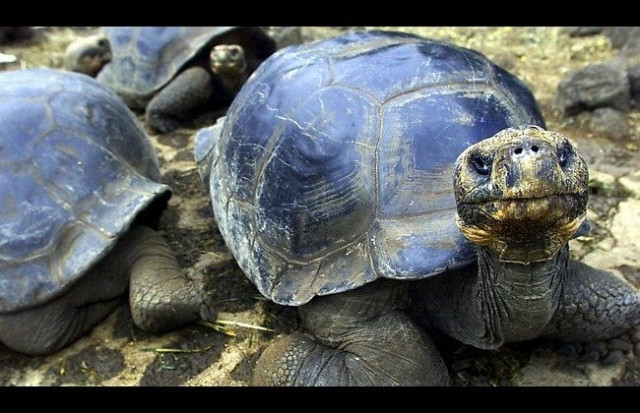New species of turtle found in Papua New Guinea
New turtle is one of three distantly-related species, Elseya novaeguineae, Elseya schultzei and Elseya rhodini

File photo of turtles. PHOTO: AFP
Mountainous and tropical Papua New Guinea is known for its rich biological diversity, but much of its remote areas are relatively unexplored.
Vietnam's beloved sacred turtle dies: state media
The new turtle is one of three distantly-related species -- Elseya novaeguineae, Elseya schultzei and the new Elseya rhodini -- found across New Guinea island, according to a recent study published in international journal Zootaxa.
The eastern part of New Guinea island is PNG while the western side is Indonesia.
"The three species evolved from a common ancestor between 17 and 19 million years ago," lead author Arthur Georges from the University of Canberra said Tuesday.
"These ages are quite remarkable and came as a surprise, because it means these turtles have together seen the full geological development of the island of New Guinea.
"The other species of freshwater turtle appear to have arrived after New Guinea had formed much as we see it today," he added.
The newly-discovered turtle species is part of the Chelidae family of side-neck turtles which are restricted to South America and Australia, along with PNG, Timor and Rote in Indonesia.
Taming illicit wildlife trafficking
It was identified as a new species distinct from its distant relatives from genetic and other data and found to be distributed across much of the island, south of the central ranges.
Georges said it was "a very pretty turtle" and that one of its distinguishing features was its reddish colouration.



















COMMENTS
Comments are moderated and generally will be posted if they are on-topic and not abusive.
For more information, please see our Comments FAQ